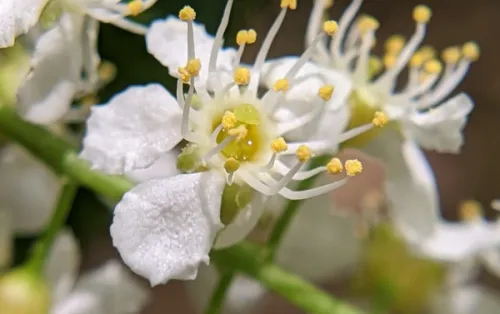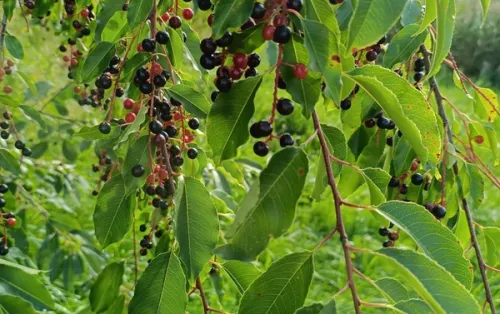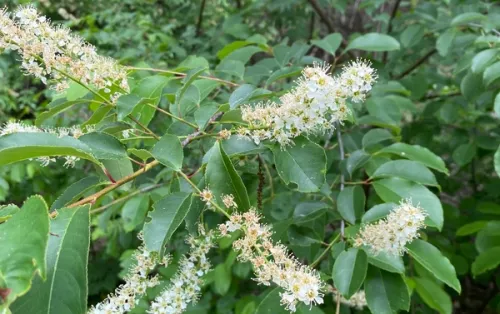Black Cherry
Black Cherry is a prominent tree that can reach heights of 50 to 80 feet, making it a significant addition to any landscape. It is noted for its straight trunk and dense, oval to pyramidal canopy. In spring, it produces special stems of small, white, fragrant flowers (called racemes) that attract pollinators such as bees and butterflies. These flowers give way to dark purple-black cherries in late summer, which are favored by birds and mammals, including humans, for their tart flavor. The cherries can be used to make jams, jellies, and liqueurs. The tree's bark is dark and rough, becoming more distinctive with age. Black cherry is particularly notable for its beautiful, reddish-brown fall foliage. It thrives in full sun and well-drained soil, often found in mixed hardwood forests, along field edges, and in open spaces.
Details
Range Map
Ecological Benefits
Maintenance Tips
- Drought-tolerant once established but may benefit from occasional watering during prolonged dry spells.
- Prune in late winter to early spring to remove damaged limbs and maintain a healthy structure.
- Prefers moist, fertile, well-drained soils but is adaptable to a range of soil conditions.
- Apply mulch around the base to help retain soil moisture and suppress weeds.
- Monitor for pests such as tent caterpillars and diseases like black knot. Manage these issues promptly to maintain tree health.







